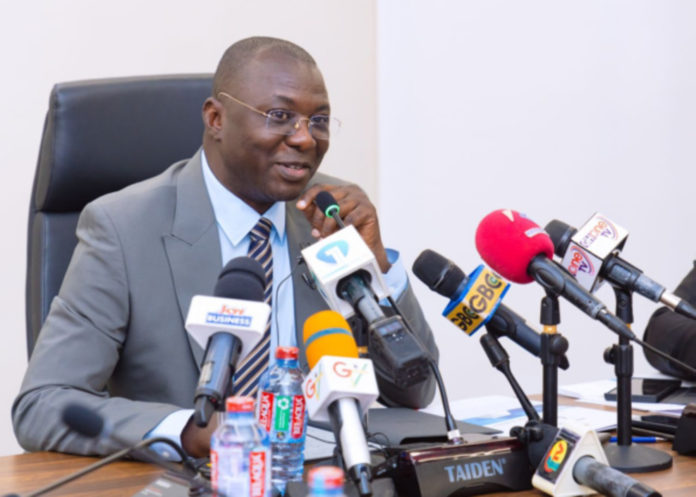Former Stanbic Bank CEO Alhassan Andani expressed profound disappointment over Ghana’s recent financial trajectory, saying the government’s declaration of the Domestic Debt Exchange Programme (DDEP) marked a historic and troubling moment.
Speaking at the Ghana CEO-Presidential Gala Dinner, Mr. Andani, who has spent over 30 years in the banking sector, called the DDEP an unprecedented declaration of financial distress for the nation—a crisis he believes is undermining private sector confidence and capital accumulation.
“In my life in banking—it’s been over 30-plus years—I’ve never seen the government broke,” Andani remarked.
“The government had never been broke until we declared the DDEP. No matter how long the government owed you money, ultimately, they would pay you.”
This faith in government reliability, Andani pointed out, was shaken two years ago when Ghana announced it could no longer fulfill its bond obligations.
Andani explained that Ghana’s capital accumulation has historically been fragile, making government support crucial for private sector growth.
Reflecting on the country’s past, he noted, “In 1979, the richest person in Ghana had $25,000.”
Despite decades of economic growth, private sector capital accumulation in Ghana remains low compared to other emerging markets, which Andani attributes to various structural and economic challenges.
The government’s inability to honor its debt commitments, Andani suggested, has cast a shadow over Ghana’s investment landscape, particularly impacting private bondholders.
“For a government to say we cannot pay… bonds that we have issued, especially to private sector people, that for me is the most shocking,” he said. Andani emphasized that the repercussions of this situation are immense, as private capital is critical for economic development and job creation.
Looking ahead, Andani urged policymakers to implement reforms that would phase out non-essential programs, create room for the private sector to stabilize, and ensure sustainable growth.
“Maybe in the new government, we could phase out some programs, push the social programs back a couple of years, and give the private sector space to recover,” he proposed.
Background on the Domestic Debt Exchange Programme (DDEP)
The DDEP, introduced by the Ghanaian government in late 2022, was designed to alleviate Ghana’s ballooning public debt by restructuring its domestic debt.
Under the program, existing bonds were swapped for new ones with extended maturities and reduced interest rates.
However, the program hit private bondholders hard, many of whom saw the value of their investments plummet.
The government argued that the restructuring was necessary to restore fiscal stability, but it sparked a backlash from financial institutions, businesses, and citizens alike, who saw the move as an indicator of a deeper economic crisis.
The program’s effects reverberated through the financial sector, with banking institutions and private sector investors absorbing the shock of significant losses.
For Mr. Andani, the DDEP’s declaration was a critical sign of financial instability that has long-term implications for the country’s economic landscape.
ALSO READ:

